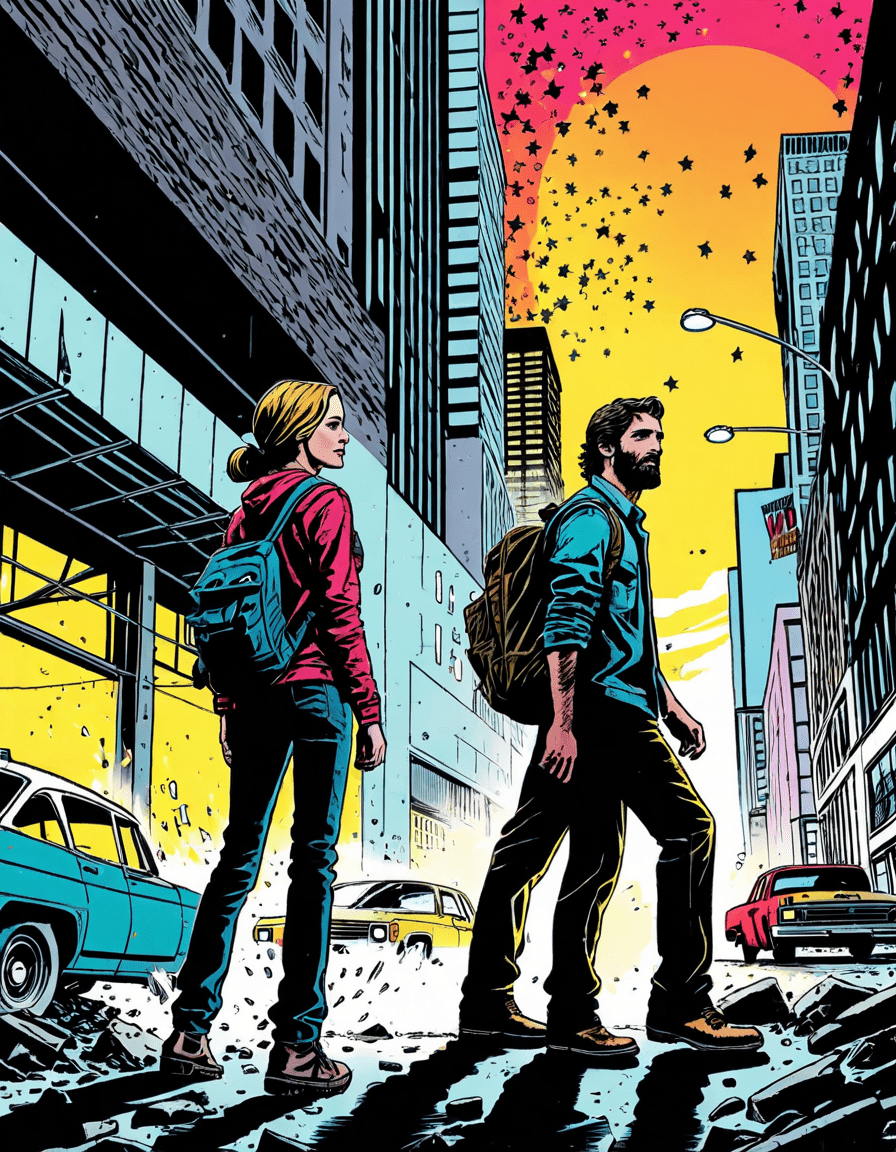The Last of Us, released back in 2013 by Naughty Dog, stands tall as a cultural phenomenon—not just within the gaming community but in broader pop culture as well. It’s more than just a game; it reshaped expectations and desires for storytelling in video games, setting a bar that many are still striving to meet. Packed with emotional depth and gripping narratives, the Last of Us impacted cinematic trends, shaping how we perceive stories across various mediums today. If you love cult classics or blockbuster hits, this title deserves your undivided attention, as its ripples are felt far beyond the console.
The Story’s Enduring Appeal
Emotional Engagement and Player Impact

The Last of Us: Top 7 Cultural Shifts Influenced by the Game
In no time at all, the Last of Us spearheaded remarkable cultural shifts in both gaming and wider media. Here are the seven significant changes that emerged from this title’s success:
The high standards set by the Last of Us forced gaming companies to write richer narratives. Titles like Life is Strange and Hades dove headfirst into deep character motivations and moral quandaries, transforming storytelling norms for the better.
Strong female leads became more prominent thanks to Ellie’s unforgettable character. Games like Tomb Raider (2013) and The Witcher 3 are now feasting off this trend, offering a rich variety of female protagonists that break the mold.
With its morally ambiguous choices, the Last of Us has paved the way for newer games to tackle intricate ethical dilemmas. Titles like Detroit: Become Human and The Walking Dead challenge players to make tough decisions, creating a more thoughtful gaming experience.
The game’s attention to detail and stunning environments have encouraged newer titles like Ghost of Tsushima and Hollow Knight to prioritize visual storytelling. As these games elevate aesthetic quality, they bridge the gap between gaming and traditional art.
Instead of focusing merely on gameplay, the Last of Us innovated in marketing by highlighting its emotional depth. This has influenced how franchises like Final Fantasy VII Remake market their titles, emphasizing story over pure mechanics.
The game fostered tight-knit communities keen on discussing its profound themes. Social media platforms have seen these discussions thrive, echoing the camaraderie found in games like Among Us, where shared experiences maximize enjoyment.
Following its success, the Last of Us set the stage for lucrative merchandising, with action figures and apparel leading the charge. Companies like Funko and Limited Run Games have profited off this trend, driving home how integral gaming culture is within consumer products.

The Last of Us and the Evolution of the Horror Genre
Steering conversations about survival horror, the Last of Us didn’t just elevate expectations, it revitalized the genre itself. Horror games, such as Resident Evil 7 and Resident Evil Village, have adopted similar narrative techniques to create genuine fear and emotional weight.
As games step up their storytelling game, indie titles like Amnesia: The Dark Descent have found success by weaving narratives that terrify and engage. The Last of Us’s more profound emotional stakes serve as a significant influence here.
The adaptation of the Last of Us into a television series on HBO not only broadened its audience but also proved video game narratives can cross media boundaries. This adaptation has help fuel a trend toward game-based narratives dominating mainstream culture today.
The Last of Us: A Legacy for the Brave
Reflecting on the impact of the Last of Us reveals its pivotal role in modern storytelling. It has set the stage for interactive media to explore emotional landscapes and complex narratives. Developers now strive to craft experiences that go beyond simple entertainment, blending storytelling finesse found in both literature and film.
As we navigate the post-Last of Us era, its legacy remains palpable. The game acts like a beacon for future generations of creators who are compelled to explore shared human experiences—the vulnerability, the strength, and importantly, the connections made through storytelling. Video games have become more than just entertainment; they invite players on emotional journeys, and for every Only the Brave hero, there’s a crowd of players ready to follow.
So, if you’ve enjoyed the Last of Us, keep an eye out for titles that push boundaries, challenge perceptions, and reinvent storytelling in ways we haven’t even imagined yet. Whether you’re shooting zombies or journeying through vast worlds, remember: it’s about the stories we share and the emotional rides we take.
For more engrossing content, don’t miss updates on thrilling films like Thor: Love and Thunder or upcoming titles such as Now You See Me 3. With icons like Bruce Campbell still making waves, there’s plenty of excitement to catch up on. Also, keep an eye out for upcoming events like the Wwe Royal Rumble 2025you never know what surprises await! If you’re looking for something more reflective, explore the deeper meanings behind the 808 angel number and its significance. Let’s celebrate the intertwining of gaming and cinema, as it leads us to become more connected and engaged with the stories we love.
The Last of Us: Impact on Gaming and Culture Today
A New Era of Storytelling
“The Last of Us” isn’t just a game; it’s a cultural touchstone that’s reshaped our perceptions of storytelling in interactive media. The game’s rich narrative, coupled with its emotional weight, has drawn comparisons to masterful films, even inspiring productions like “Don’t Move Movie,” which explores similar themes of survival and humanity. Players often find themselves investing in the characters deeply, something that echoes how we feel about beloved animated features like Puss in Boots. Just as audiences connect with Puss’s adventures, fans have formed bonds with Ellie and Joel, celebrating their resilience and growth through harrowing circumstances.
A Musical Canvas
One of the standout elements of “The Last of Us” is its evocative soundtrack by Gustavo Santaolalla, which has become iconic in its own right. This music creates an atmosphere that’s as haunting as it is beautiful. Interestingly, many fans don’t realize that the game’s soundscapes have influenced other media as well, weaving their way into various genres, including the upcoming “Thor: Love and Thunder.” Just imagine how a carefully crafted score can elevate a narrative—much like how Levon Roan Thurman Hawke, the child actor from director Ethan Hawke, captures hearts in his latest projects. It’s fascinating how these creative expressions reflect an evolution in how stories combine visuals and auditory experiences.
Characters That Resonate
The character development in “The Last of Us” has prompted discussions about heroism and morality. Players ponder the true meaning of being an unsung hero as they navigate tough choices throughout the story. This kind of character-driven narrative isn’t isolated; it reflects wider conversations seen in current films and series that challenge societal norms and expectations. For example, experiences in gaming can also resonate with spiritual insights, such as interpreting the 808 angel number meaning, which symbolizes change and advancement. This cross-pollination of themes makes “The Last of Us” a pivotal player in enhancing our understanding of personal evolution in both entertainment and everyday life.
The influence of “The Last of Us” on gaming and culture today can’t be overstated. This game has set new bars for storytelling, character depth, and emotional engagement, making it a lasting force in both the gaming industry and the larger cultural landscape.





